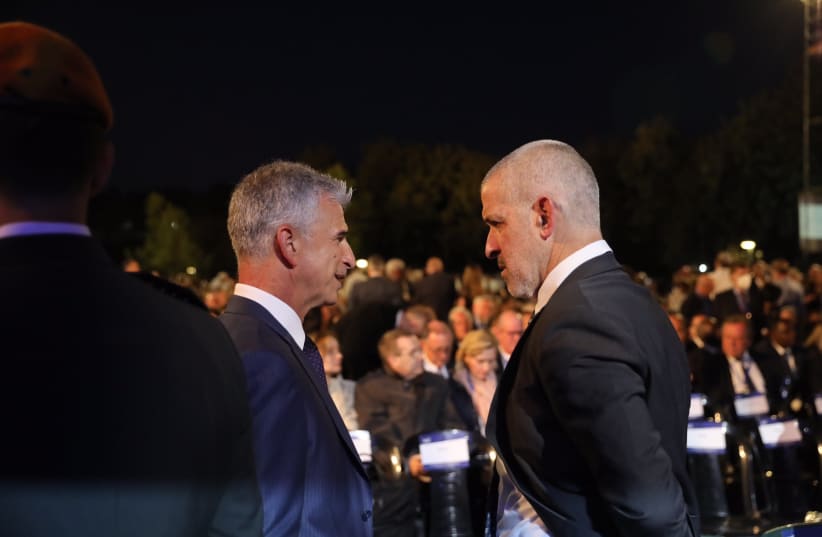Mossad Chief Dedi Barnea said during the meeting of the political-security cabinet on Wednesday that anyone who claims that the agreement on the maritime border is an achievement for Hezbollah, does not understand the situation in Lebanon, according to Walla.
Shin Bet Chief Ronen Bar described the agreement as something that creates a rift between Iran and Hezbollah.
IDF Chief of Staff Lt.-Gen. Aviv Kohavi agreed with the Mossad chief, concurring that the agreement is not good for Hezbollah, according to two sources who attended the cabinet meeting.
The head of Mossad said that the agreement is not favored by Hezbollah because it constitutes a de facto recognition of Israel, something that Hezbollah opposes.
Barnea added that Hezbollah began to deal with the issue of the maritime border agreement in a serious way only last May, when the organization recognized that public opinion in Lebanon supported it.
"Hezbollah did not want an agreement with Israel, but realized that in light of the internal political crisis in Lebanon, it has an opportunity to gain points in public opinion," Barnea said.
US-mediated maritime boundary agreement
The Security Cabinet called to approve the US-mediated maritime boundary agreement between Israel and Lebanon as soon as possible on Wednesday.
“There is importance and urgency in reaching a maritime agreement between Israel and Lebanon at this time. Security Cabinet members express support for promoting the authorization process in the cabinet,” a statement from the Security Cabinet said.
From there, the agreement went to a full cabinet meeting, and was set to be submitted to the Knesset in the evening. The full cabinet is expected to decide whether the agreement will go to a parliamentary vote.
The final cabinet vote on the agreement with Lebanon will be in two weeks, as the government confirmed in a statement to the High Court on Wednesday, responding to a challenge to the procedure.
Lahav Harkov contributed to this report.

